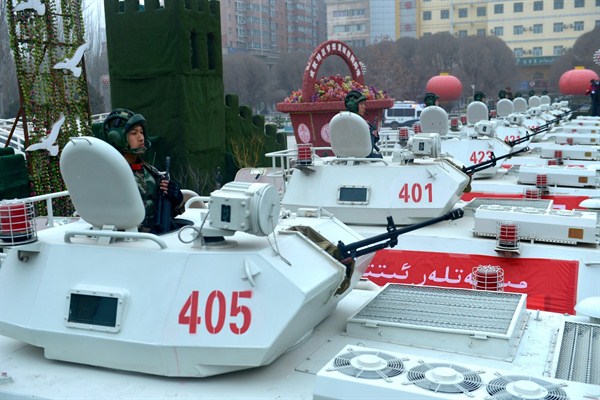The Chinese government has long framed its treatment of the ethnic Uighur population in the region of Xinjiang as part of a counterterrorism campaign, even more so recently. In February, the so-called Islamic State released a video purporting to show militants from Xinjiang vowing to bring the fight to China. On April 1, the government began enforcing anti-extremism measures including rules against veils and “abnormal” beards. In an email interview, Sean R. Roberts, a cultural anthropologist at George Washington University currently working on a book about Uighur militancy, discusses how violence in Xinjiang has evolved and whether it can accurately be described as terrorism.
WPR: What are the expressed grievances of the Uighur population in Xinjiang, and to what degree are they religiously motivated?
Sean R. Roberts: The grievances of the Uighurs in Xinjiang are multiple and include both longstanding issues with authorities in Beijing and more recent reactions to Chinese government policy in the region. The Uighurs, like the Tibetans, view the region inside China in which they live as their homeland, and they have long sought more self-determination over that territory.

